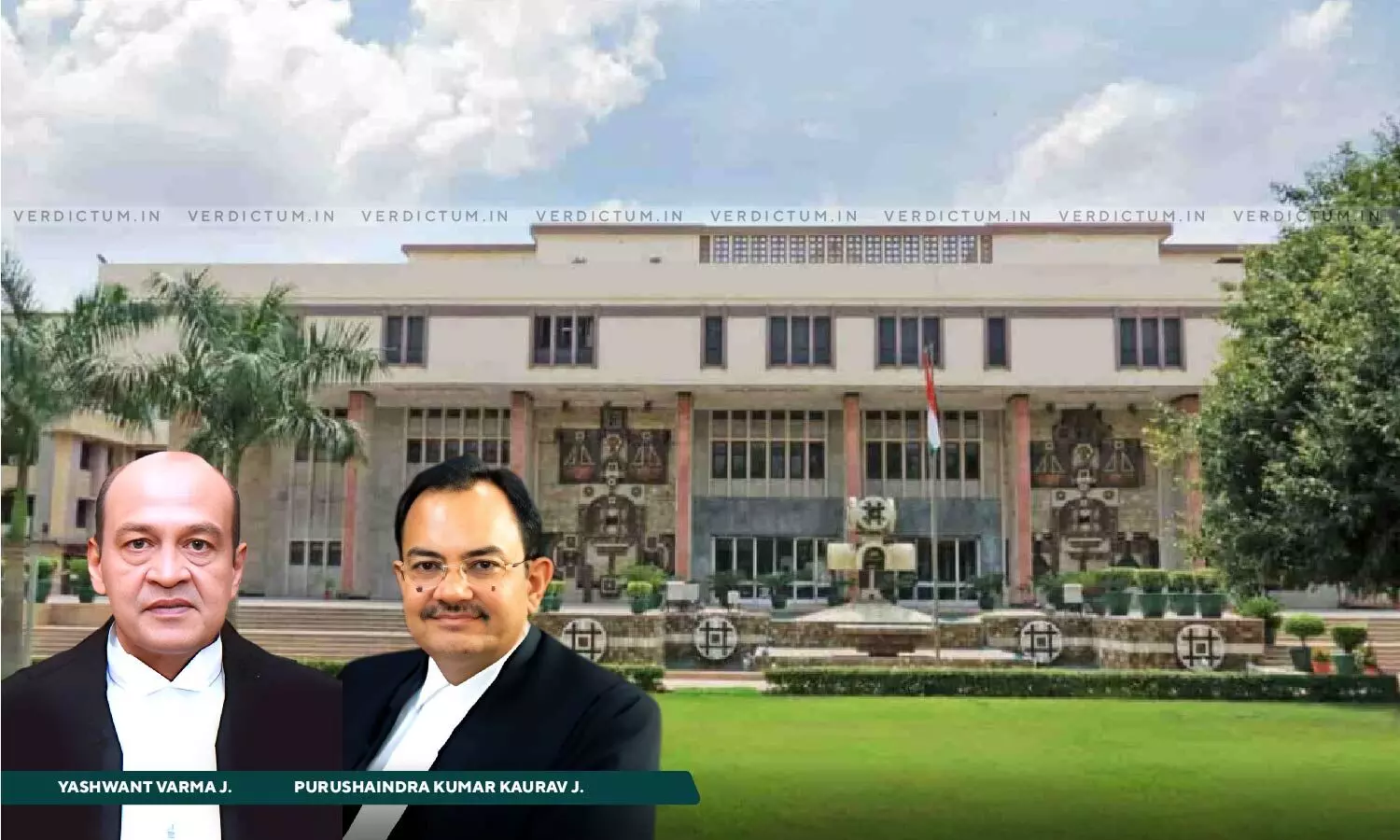
Income Tax Act| Both Under-Reporting As Well As Misreporting Are Viewed As Separate And Distinct Misdemeanours: Delhi HC
 |
|The Delhi High Court said that under the Income Tax Act, 1961, both under-reporting as well as misreporting are viewed as separate and distinct misdemeanours.
The Court was deciding a batch of two writ petitions filed by a company named GE Capital US Holdings Inc against the Deputy Commissioner of Income Tax (International Taxation).
A Division Bench comprising Justice Yashwant Varma and Justice Purushaindra Kumar Kaurav observed, “As is evident from a reading of Section 270A(1), a person would be liable to be considered to have under-reported its income if the contingencies spoken of in clauses (a) to (g) of Section 270A(2) were attracted. In terms of Section 270A(3), the under-reported income is thereafter liable to be computed in accordance with the stipulations prescribed therein. However, the subject of misreporting of income is dealt with separately in accordance with the provisions comprised in sub-sections (9) and (10) of Section 270A. It is thus evident that both under-reporting as well as misreporting are viewed as separate and distinct misdemeanors.”
Advocate Sachit Jolly appeared for the petitioner while CGSC Ravi Prakash appeared for the respondents.
Brief Facts -
The petitions challenged the orders pursuant to which the applications of the petitioner referable to Section 270AA(4) of the Income Tax Act, 1961 (ITA) for being accorded immunity from imposition of penalty were rejected. Pursuant to the amendments which were permitted to be moved in the instant writ petitions, the petitioner additionally challenged the notices for levy of penalty under Section 270A of the Act. While the first writ petition was concerned with Assessment Year 2018-19, the second writ petition was related to AY 2019-2020.
For AY 2017-18 and upon due processing of the Return of Income which was submitted, the respondents proceeded to pass an order of assessment in February 2020 holding that the receipts of the petitioner in that year were liable to be taxed as royalty in terms of Section 9(1)(vi) of the Act read along with Article 12 of the India-USA Double Taxation Avoidance Agreement.
The High Court in view of the facts and circumstances of the case noted, “However, and as we read the orders of assessment which were passed, the same carry no findings which may be viewed as indicative of the contingencies spelt out in clauses (a) to (f) of Section 270A(9) being attracted. In our considered opinion, in the absence of the AO having specified the transgression of the petitioner and which could be shown to fall within the ambit of sub-section (9) of Section 270A, proceedings for imposition of penalty could not have been mechanically commenced.”
The Court further said that since an application for grant of immunity cannot possibly be pursued unless the assessee complies with clauses (a) and (b) of Section 270AA (1), the observation of the respondent that mere payment of demand would not lead to a prayer for immunity being pursued is wholly unsustainable.
“We are further constrained to observe that even the assessment orders fail to base the direction for initiation of proceedings under Section 270A on any considered finding of the conduct of the petitioner being liable to be placed within the sweep of sub-section (9) of that provision. The order of assessment as well as the SCNs’ clearly fail to meet the test of ―specific limb‖ as propounded in Minu Bakshi and Schneider Electric. A case of misreporting, in any case, cannot possibly be said to have been made out bearing in mind the fact that the petitioner had questioned the taxability of income asserting that the same would not constitute royalty. The issue as raised was based on an understanding of the legal regime which prevailed. The contentions addressed on that score can neither be said to be baseless nor specious. In fact, that stand as taken by the petitioner was based on a judgment rendered by the jurisdictional High Court which was indisputably binding upon the AO who, for reasons unfathomable, thought it fit to base its decision on a judgment rendered by the Karnataka High Court”, it observed.
The Court added that the petitioner had duly complied with the statutory pre-conditions set out in Section 270AA(1) and it was thus incumbent upon the respondent to have come to the firm conclusion that the case of the petitioner fell in the category of misreporting since that alone would have warranted a rejection of its application for immunity.
Accordingly, the High Court allowed the writ petitions and quashed the impugned orders.
Cause Title- GE Capital US Holdings Inc v. Dy Commissioner of Income Tax (International Taxation) Circle 1(3)(1), New Delhi and Ors. (Neutral Citation: 2024:DHC:4535-DB)
Appearance:
Petitioner: Advocates Sachit Jolly, Soumya Singh, Disha Jham, Devansh Jain, Aditya Rathore, and Abhyudaya Shankar Bajpai.
Respondents: CGSC Ravi Prakash, SCs Puneet Rai, Ashvini Kumar, Rishabh Nangia, and Advocate Nikhil Jain.